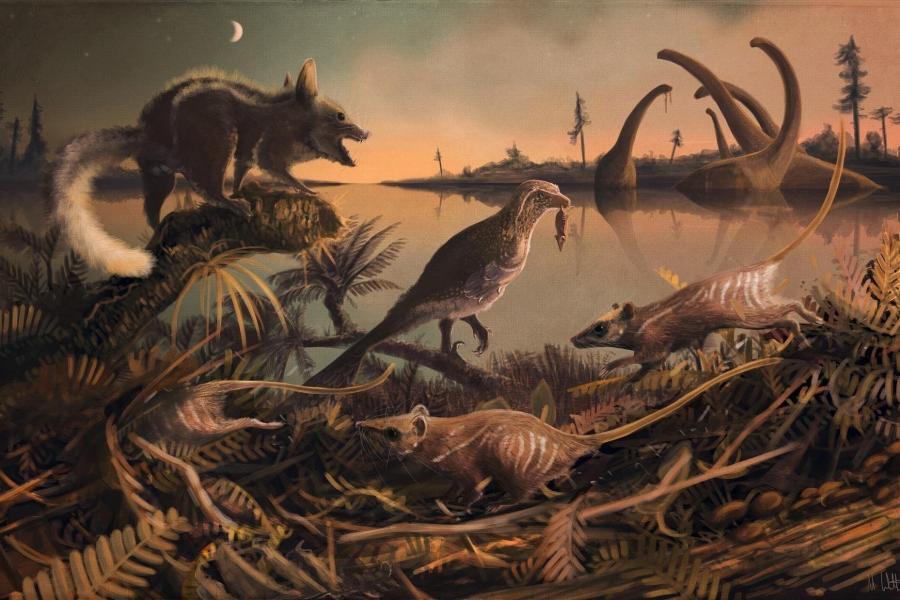Rat's teeth stumbled on by student could be our oldest living ancestors
Scientists can draw a direct line between the teeth and those in our own head

Your support helps us to tell the story
From reproductive rights to climate change to Big Tech, The Independent is on the ground when the story is developing. Whether it's investigating the financials of Elon Musk's pro-Trump PAC or producing our latest documentary, 'The A Word', which shines a light on the American women fighting for reproductive rights, we know how important it is to parse out the facts from the messaging.
At such a critical moment in US history, we need reporters on the ground. Your donation allows us to keep sending journalists to speak to both sides of the story.
The Independent is trusted by Americans across the entire political spectrum. And unlike many other quality news outlets, we choose not to lock Americans out of our reporting and analysis with paywalls. We believe quality journalism should be available to everyone, paid for by those who can afford it.
Your support makes all the difference.Scientists have found the oldest known ancestors of humans.
They were discovered after a student stumbled over the fossil remains of two creatures, which look a little like rats, in Dorset.
The animals were running around the feet of the dinosaurs some 145 million years ago, meaning that they are by far the oldest ancestors that we have discovered.
Scientists say a direct line can be drawn between the little scurrying mammals and ourselves.
The two teeth, which belong to two different species, were found in samples of Cretaceous period rock found in exposed cliffs near Swanage. But on further inspection they may help us write the history of human development.
Dr Steve Sweetman, from the University of Portsmouth, said his "jaw dropped" when one of the university's undergraduate students asked him to look at the specimens.
He said: "The teeth are of a type so highly evolved that I realised straight away I was looking at remains of Early Cretaceous mammals that more closely resembled those that lived during the latest Cretaceous, some 60 million years later in geological history.
"In the world of palaeontology there has been a lot of debate around a specimen found in China, which is approximately 160 million years old. This was originally said to be of the same type as ours but recent studies have ruled this out. That being the case, our 145 million-year-old teeth are undoubtedly the earliest yet known from the line of mammals that lead to our own species."
The area where student Grant Smith found the teeth is known as the Jurassic Coast because it has produced so many dinosaur fossils.
Both the ancient mammals were probably nocturnal, Dr Sweetman and co-authors reported in the journal Acta Palaeontologica Polonica.
One was likely to have been a burrower that ate insects and the other larger creature may have consumed plants as well, the researchers believe.
Dr Sweetman added: "The teeth are of a highly advanced type that can pierce, cut and crush food. They are also very worn which suggests the animals to which they belonged lived to a good age for their species - no mean feat when you're sharing your habitat with predatory dinosaurs."
The animals are believed to be direct ancestors of most mammals living today including creatures as diverse as the blue whale and pigmy shrew, as well as humans.
One of the species has been named Durlstotherium newmani, after Charlie Newman, landlord of the Square and Compass pub in the village of Worth Matravers close to where the fossils were discovered. The other has been named Durlstodon Ensomi.
Additional reporting by agencies
Join our commenting forum
Join thought-provoking conversations, follow other Independent readers and see their replies
Comments